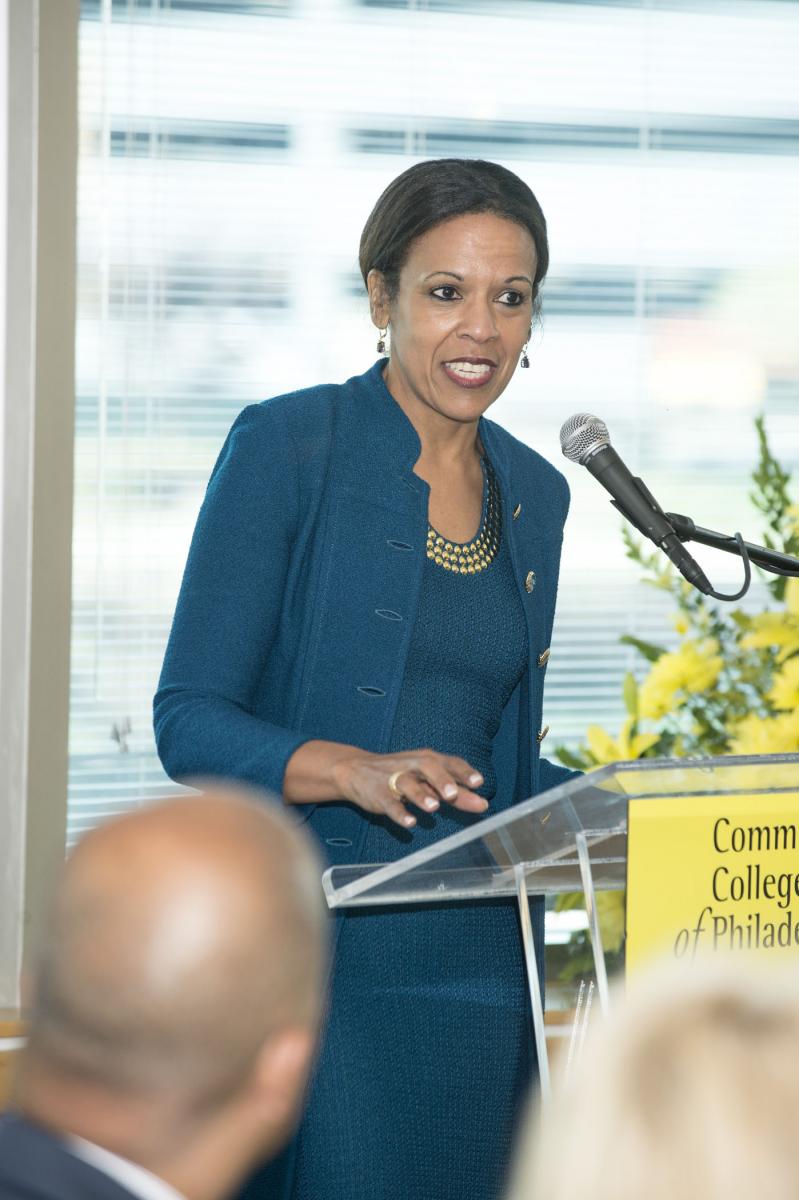Dr. Karen E. Nelson: Intersecting Science and Humanity to Boost Global Health

Dr. Karen E. Nelson’s social-good science knows no bounds. A microbiologist whose research may one day allow doctors to match medical care to an individual’s genetic code, Nelson’s ground-breaking research has had a global impact — and it could change how people live their lives.
Her passion as a scientist is only matched by her desire to direct more students on the road to Science, Technology, Engineering and Mathematics (STEM) careers. Nelson, president of the renowned J. Craig Venter Institute (JCVI) and a leader in the National Institutes of Health Human Microbiome Project (HMP), tirelessly works to put more students, especially women and minorities, into the STEM pipeline — and keep them there.
“It’s great to get students into STEM, but we need to think about all aspects,” Nelson said at a breakfast meeting at Community College of Philadelphia April 22. “Creating opportunities for students is important, but also giving them the support so that they will be successful in the long term is important, too.”
Community College of Philadelphia, which is addressing the need for more STEM graduates to fill in-demand positions in Philadelphia, recognized Nelson for her research and advocacy with a cover story in its spring edition of Pathways, the College’s magazine. Nelson also met with the College’s STEM students while on campus.
A native of Kingston, Jamaica, Nelson’s childhood fascination with plant life whetted her appetite for science. She eventually earned a Ph.D. at Cornell University; and led the first team ever to publish a paper on the human microbiome, a colony in the body teeming with varied species — bacteria, viruses, and fungi — all of which affect health and disease.
JCVI is already the response site for emerging infectious diseases, such as the Flu and Zika viruses, Nelson said. The goal is to enable health care providers to tailor treatments to the unique characteristics of an individual.
That’s where the social-good science comes in.
Imagine if an individual could lower their blood pressure with medication specifically tailored to their genetic background? Imagine too, if the doctors and scientists who did the work were as diverse as humans themselves? Such breakthroughs would truly be game-changers.
Diversity in the field makes good sense and good science, Nelson said.
“There are diseases that are specific to minorities and specific to women. If we don’t have advocates for those diseases, they’re not going to the attention they need,” said Nelson, who
mentors aspiring STEM leaders through JCVI’s Genomics Scholars Program, which provides hands-on learning opportunities with a focus on transitioning students from community colleges to four-year institutions. “I’ve had a great experience as a scientist. To the extent I can be a role model, that is what I want to do.”